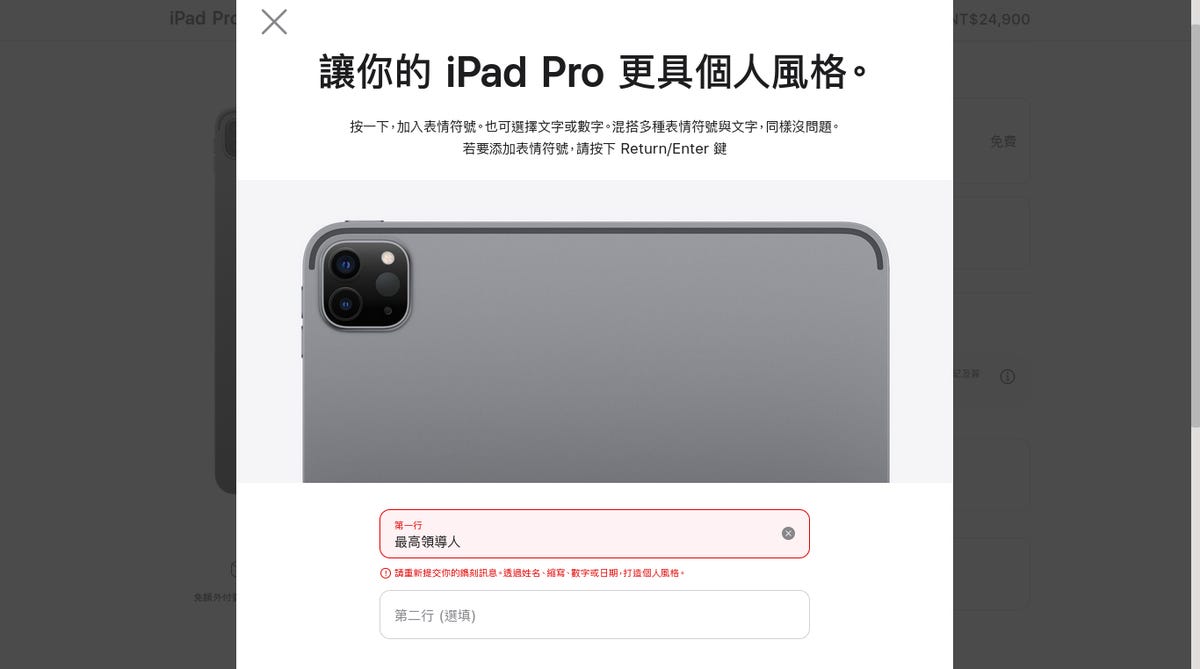
Citizen Lab finds Apple’s China censorship process bleeds into Hong Kong and Taiwan


Apple’s application of filters for blocking content in China has seeped into how it operates in Hong Kong and Taiwan, according to Citizen Lab researchers.
According to research performed by Citizen Lab, Apple’s application of filters, which pertain to derogatory, racist, sexual, and sometimes political content, censor more than what is required by a certain region’s moderation regulations.
The research looked at keyword filtering rules used by Apple to moderate content across China, Hong Kong, Taiwan, Japan, Canada, and the United States.
While the six jurisdictions each have different regulatory and political environments that may affect Apple’s filtering decisions and content moderation policies, Citizen Lab found the censorship applied within China also bled into both Hong Kong and Taiwan, with much of this censorship exceeding Apple’s legal obligations.
In Taiwan, Apple does not have any legal obligation to perform political censorship, but it still blocks engravings related to the Chinese Communist Party, China’s state organs, and political-religious groups like Falun Gong.
Meanwhile, in Hong Kong, Apple broadly censors references to collective action, such as the Umbrella Revolution, Hong Kong Democratic Movement, double universal suffrage, and freedom of the press.
Although the National Security Law took effect in Hong Kong last year, which can potentially be used to mandate entities and individuals to remove political content, freedom of expression is legally protected in the region under the city’s Basic Law and the Bill of Rights.
Beyond Apple double-dipping China’s filtering practices in Hong Kong and Taiwan, the iPhone maker at times also made arbitrary blocks. In one case, Citizen Lab said Apple censored ten Chinese names surnamed Zhang with generally unclear significance, although it said the names were also on a list used to censor products from a Chinese company.
“Apple does not fully understand what content they censor and that, rather than each censored keyword being born of careful consideration, many seem to have been thoughtlessly reappropriated from other sources,” Citizen Lab claimed.
“Apple’s seemingly thoughtlessly and inconsistently curated keyword lists highlight the ongoing debates of companies’ content regulation models. Companies, especially those operating globally, have great impacts on both users of their products and non-users who may be indirectly affected by their products.”
In the research, Citizen Lab analysed how Apple engravings for keywords are filtered across the six different regions. For each region, Apple verifies engravings using a different API endpoint, which facilitates different filtering rules for each region.
By testing how these different API endpoints responded to the engravings of over 505,000 previously discovered keywords that are censored in various Chinese applications, including WeChat, Citizen Lab discovered the largest amount of blocks applied to mainland China, where Citizen Lab found 1,045 keywords filtering product engravings, followed by Hong Kong with 542, and then Taiwan with 397.
By reviewing the filtered engravings, Citizen Lab found the Taiwan filtering rules are a strict subset of the Hong Kong filtering rules which are a strict subset of the mainland China filtering rules.
The researchers also said Apple does not have any public-facing policy documents that explain or regulate what users can or cannot engrave on Apple products across each of the six jurisdictions.
In light of the lack of transparency regarding how Apple moderates its content, Citizen Lab has called for the company to release a set of guidelines explaining why and how the company moderates content.
“The need for Apple to provide transparency in how it decides what content is filtered is especially important as we discovered evidence that Apple derived their Chinese language keyword filtering lists from outside sources, whether copying from others’ lists or receiving them as part of a directive,” the Canadian research group said.
Citizen Lab previously unveiled WeChat, the popular messaging app operated by Tencent, subjected China’s pervasive content surveillance to accounts beyond China that were previously thought to be exclusively reserved for China-registered accounts.
“WeChat implements censorship for users with accounts registered to mainland China phone numbers. This censorship is done without notification to users and is dynamically updated, often in response to current events,” Citizen Lab wrote in that piece of research.
Related Coverage
- Citizen Lab says non-China registered accounts used to beef up WeChat censorship
- Zoom concedes custom encryption is substandard as Citizen Lab pokes holes in it
- Citizen Lab: WeChat’s real-time censorship system uses hash indexes to filter content
- China bans children under 16 from appearing in live-streaming and online video content
- Tencent’s WeChat steps up censorship to clear undesirable content
Source: https://www.zdnet.com/article/citizen-lab-finds-apples-china-censorship-process-bleeds-into-hong-kong-and-taiwan/#ftag=RSSbaffb68


















